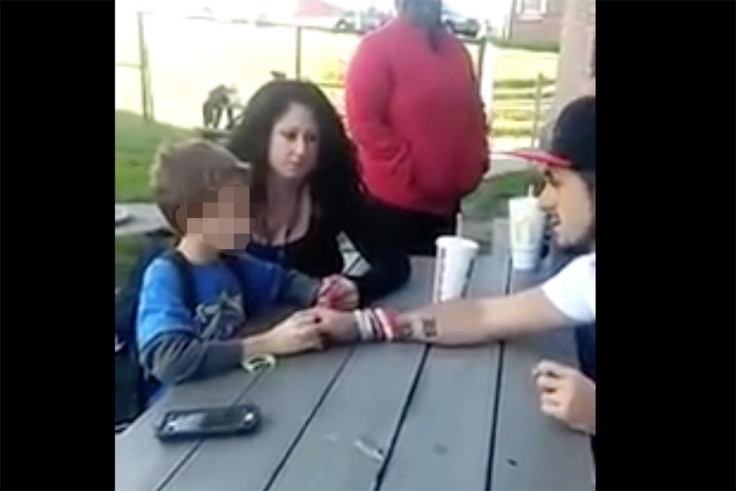The video of a child being told his mum has died of a drug overdose isn't powerful - it's exploitative
As far as the father is concerned he performed a difficult public duty by showing his eight year-old suffer.

I am often bemused by the casual manner with which some people post intimate personal details of their lives on the social media. There is something disquieting about the ease with which some people seem to turn their private life into a public spectacle. Despite my visceral reaction against online exhibitions of "its all about me" I usually respond by thinking "it's their business and none of my concern".
This time my reaction is very different. I look at a video of a father sitting opposite his eight year-old son. The father is informing his young boy that his mum has died from a heroin overdose. "I have something to tell you, OK?", says the father, before stating "Mommy died last night."The distraught boy asks how, and his father replies "from drugs". The boy weeps.
The father then decided to post this emotionally disturbing video on his Facebook page. It has already been viewed 24 million times, shared more than 600k times and has had over 80,000 comments. The father claimed that he published the video online to prevent children of other addicts from suffering. On his Facebook page, he wrote "This for any and every addict with children." He added "don't let this disease have to make someone tell your child that your dead because of drugs."
As far as the father is concerned he has performed a difficult public duty by posting a very public visual record of the intense suffering and grief of his eight year old boy. In the aftermath of losing someone close people can react in an unpredictable manner to the tragic episode. I, for one, am reluctant to judge the behaviour of someone who is likely to be overwhelmed by the loss of a loved one and the mother of his child.
However, the posting of this video raises again the troubling question of whether adults have the right to post pictures and videos of their children online. Supporters of children's rights insist that youngsters have a moral right to control their own digital footprint. From this standpoint parents have a moral obligation to resist the temptation of sharing photographs of their children with a mass online audience.
I do not accept the argument that it is, in principle, morally wrong to be post pictures of a baby or child online. We live in a world where our online experience constitutes an important dimension of our life. Sharing pictures of our family holiday or of a birthday has no inherent negative connotations as such. It takes a real killjoy to criticise a mother or a father for sharing a picture of their daughter laughing whilst opening a birthday gift.
If there is a problem, it is the tendency of some parents to make a statement about themselves through their children. When parents express themselves through a picture of their son, the child serves as a proxy through which they make a statement about themselves. The impulse to use a child to demonstrate parenting prowess can often lead to a form of exhibitionism, which is mediated through the image of a child.
The video of a father and son grieving serves as an unpleasant example of parental exhibitionism in which an eight-year-old child is offered up as evidence of the responsible and public-spirited behaviour of the father.
What's really creepy about the video is the almost pornographic manner in which the genuine distress of a crying child was used to gain maximum public attention. But the purpose of the video had little to do with the well-being or welfare of the child. Where I come from, that's called exploitation.
Frank Furedi's What's Happened To The University: Sociological Reflections on its Infantilisation is published by Routledge later this month
© Copyright IBTimes 2025. All rights reserved.




















